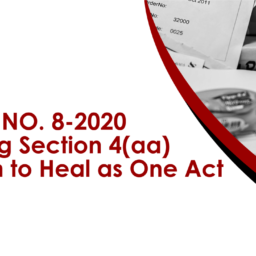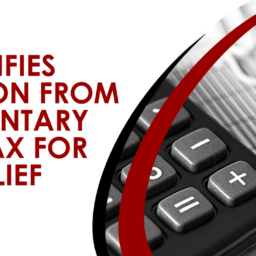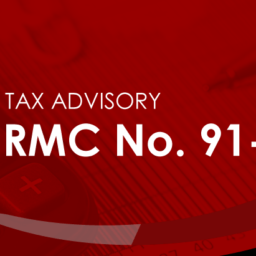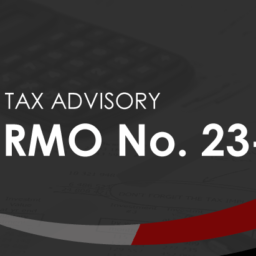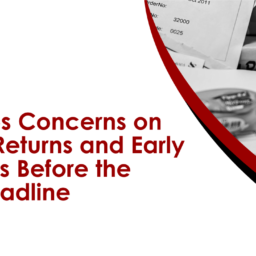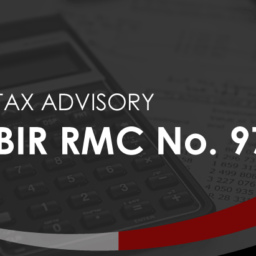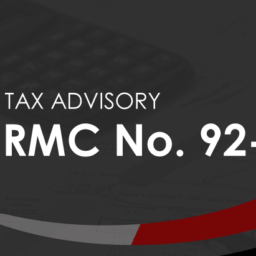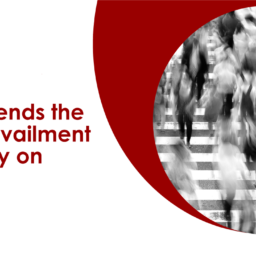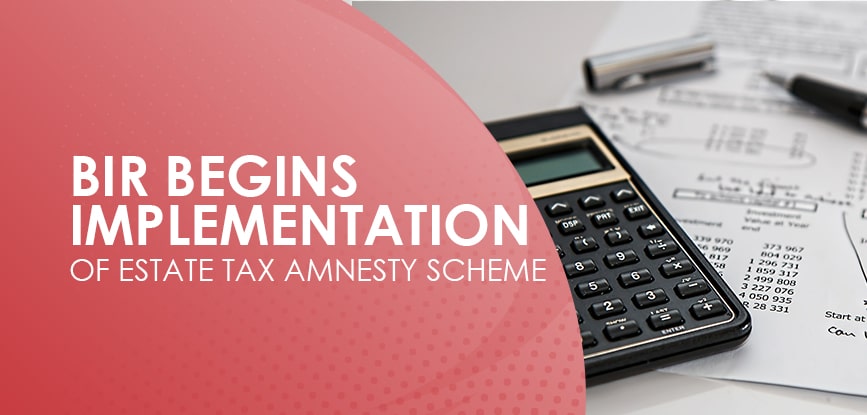
BIR Begins Implementation of Estate Tax Amnesty Scheme
The Bureau of Internal Revenue (BIR) started accepting applications from heirs who have to pay for the estate tax dues accumulated by their deceased loved ones since June 17. Deputy Commissioner Marissa O. Cabreros said that BIR held briefings at their main headquarters in Quezon City to all frontline officers last week in preparation for the processing of estate tax amnesty applications.
Signed on May 30, 2019, the Revenue Regulation (RR) (No. 6-2019) of BIR introduced provisions for Republic Act (RA) No. 11213, otherwise known as the “Tax Amnesty Act of 2019” or Tax Amnesty Act. The issuance provides taxpayers with an estate tax amnesty program that gives reasonable tax relief to the outstanding liabilities of heirs from the inheritance of the decedent’s estate.
BIR released RR No. 6-2019 on May 29, 2019 to apply provisions for the Tax Amnesty Act of 2019 to cut the heir’s amount of payment to settle all tax liabilities levied on the inherited property owned by the decedent. The latest issuance will aid the Department of Finance (DOF) in collecting a total of P6 billion unpaid taxes from various inheritors in the Philippines.
Documentary Requirements and Effectivity of Guidelines
Before the taxing authority grants the estate tax amnesty to heirs of decedents, BIR listed the following requirements at the Estate Tax Amnesty Return (ETAR) or BIR Form No. 2118-EA. They must file all documents in three copies (Original copy and two [2] photocopies of each requirement):
- Certified True Copy of the Decedent’s Death Certificate (DC);
- Tax Identification Number (TIN) of the Decedent and Heir/s;
- BIR Form No. 2118-EA;
- Estate Tax Acceptance Payment Form (APF), Revenue Official Receipt (ROR), if paid to the Revenue Collection Officer (RCO);
- Affidavit of Self Adjudication or Deed of Extra-Judicial Settlement (EJS) of the Estate of the decedent
- If the heir can’t present the former, the Court’s decision/judgment for the estate’s legal settlement or the decedent’s last will before their passing will suffice.
- Certification of the Barangay Captain for the last residence of the decedent and claimed Family Home if available;
- A Notarized Promissory Note for “Claims Against the Estate” arising from Contract of Loan if applicable;
- Proof of the claimed “Property Previously Taxed” if available;
- Proof of the claimed “Transfer for Public Use” if available;
- At least one (1) valid government ID of the executor/ administrator of the estate. If the estate does not have an executor or administrator appointed, a valid government ID from the heirs, transferees, beneficiaries, or authorized representatives will suffice.
If the heir is an inheritor of real property/ies, they must file the following:
- Certified true copy/ies of the Transfer/Original/Condominium Certificate/s of Title of real property/ies;
- A valid certified copy of the Tax Declaration of real property/ies, including the improvements at the time of death or the succeeding available tax declaration issued nearest to the time of death of the decedent, if none is available at the time of death;
- Certificate of No Improvement issued by the Assessor’s Office at the time of death of the decedent if the declared property/ies has/have no improvement
However, inheritors of personal property/ies must present these documents to BIR:
- Certificate of Deposit/Investment/Indebtedness owned by the decedent alone, or decedent and the surviving spouse, or decedent jointly with others;
- Certificate of Registration of vehicle/s and other proofs showing the correct value of the same;
- Certificate of stocks;
- Proof of valuation of shares of stock at the time of death;
- Proof of valuation of other types of personal property
The implementing rules and regulations of RR No. 6-2019 took effect 15 days after publishing the guidelines on different newspapers such as but not limited to Inquirer, The Philippine Star, and their online counterparts. However, the implementation of the provisions took place on June 17 instead of June 15, which is a Saturday.
Previously, RA 11213 only collects 6% of the decedent’s total net taxable estate at the time of their deaths for those who died on or before December 31, 2017. The provisions under RR No. 6-2019 will no longer penalize the total net taxable estate of the deceased during the stages of property transfer. The minimum estate tax for the transfer of estate now costs P5,000.


